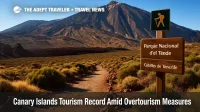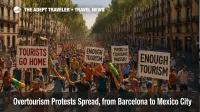Overtourism
Overtourism is an emerging phenomenon with far-reaching consequences in the travel world. Simply defined, it refers to a situation where excess tourism results in a degradation of the experience for both residents and visitors. Overtourism is marked by extensive damage to the environment, life-quality disruption for locals, and diminished visitor satisfaction. It becomes a pertinent issue as the very act of travel that should ideally preserve and promote culture, environment, and economy of travel destinations, begins to harm them.
The Context of Overtourism
The phenomenon of overtourism is a relatively recent construct, though its roots could be traced to the explosion of global tourism that began in the mid-20th century with widespread commercial air travel. However, the term gained traction only during the past decade, as travelers around the world and the destinations receiving them started feeling its adverse effects. The problem became more ostensible with the popularization of affordable travel and the advent of digital platforms, which stimulated mass tourism, often to the detriment of destinations. The growth of the middle class in countries like China and India, and their corresponding travel appetite further exacerbated the situation.
Impacts of Overtourism
Overtourism has multifarious impacts ranging from environmental to socio-cultural, and economic. The environmental impacts are most visible; excessive tourism often leads to significant environmental degradation. Natural habitats and biodiversity hotspots turn into mere recreational areas, suffering from pollution and depletion of resources. On the ecological front, overtourism often leads to damage to ecosystems due to the massive footfall of tourists.
Continuing with the cultural impacts, overtourism often results in what is colloquially referred to as 'Disneyfication'. This term refers to the commodification of culture for the pleasure of tourists, eventually leading to a loss of authenticity. It often instigates socio-cultural clashes and exacerbates inequality, with locals often pushed to the periphery. The landscape of resident life gets dramatically altered with inflated property prices, exacerbated by phenomena like Airbnb and other property rental services.
Economically, on the surface, tourism appears to infuse wealth into local economies. However, in scenarios of overtourism, economic benefits often get skewed. With most tourists flocking to popular hotspots, revenue gets concentrated, leaving other areas impoverished. A dependence on tourism also means that any fluctuation in tourist numbers can lead to an economic crisis. It also stimulates inflation, leading to a higher cost of living for the locals.
Addressing Overtourism
Addressing the issue of overtourism involves a multi-pronged approach with measures from all stakeholders, including government bodies, tourism companies, and the tourist themselves. One of the ways to mitigate the issue is by encouraging the use of alternative travel routes and less popular destinations. In this effort, the role of tourism companies, travel planners, and influencers becomes crucial. They can steer the tourist choices away from overcrowded areas to lesser-known gems to ensure equal distribution of tourism impacts.
Policy interventions from government bodies can also help in addressing the issue. They can regulate the number of tourist permits, introduce higher entry fees for popular spots, or even temporarily close areas that are heavily affected by tourism. The revenues thus collected can be invested in conserving and rehabilitating the areas damaged due to tourism.
Critical to these official initiatives, is the role of the tourists themselves. A shift to responsible and sustainable travel trends is vital. Tourists should be mindful of the local culture and environment when visiting a place. Reducing one's carbon footprint, respecting local customs, and contributing to local economies by buying local are small but significant steps in this regard.
Future of Travel Post-COVID-19
The COVID-19 pandemic has brought a standstill to tourism worldwide. With travel bans and lockdowns hitting hard, areas that were once complaining of overtourism are now yearning for tourists. The pandemic has taught us, albeit the hard way, about the delicate balance required for sustainable tourism practices. As we look towards revival post-COVID-19, it would be important to remember the lessons learned during this period.
Overtourism, as a term and phenomenon, could have been an outcome of careless travel and myopic planning. However, it has now served as an alarming siren, alerting us to the dire need for a more sustainable approach to travel. It is a clarion call to everyone involved in the tourism industry and those who love to travel, to unite in making travel pleasant, sustainable, and respectful to the environment and local cultures.
InsideJapan, JNTO Push Aomori, Nagasaki, Shikoku

Construction Risk Milos Sarakiniko Coastline

Europe Emerging Destinations Report Spotlights Nordics

Capri Tour Group Cap 40 Starts Summer 2026

Chinchero Airport Peru May Crowd Machu Picchu

Fujiyoshida Cherry Festival Canceled at Arakurayama

Rome Trevi Fountain €2 Entry Fee Starts Feb 2

Amsterdam Ocean Cruise Ban Proposal Targets 2035

Goway Adds Kyushu, Shizuoka Japan Tour Packages

French Riviera Cruise Caps Limit Nice, Cannes Tender Calls

Rome Trevi Fountain Fee Starts February 1, 2026

Spain Airbnb Fine Hits Tourist Rental Listings

New Alaska Cruise Lines Test Ports And Capacity

Milan Key Box Ban From 2026 For Short Term Rentals

Kyoto accommodation tax to increase in 2026

Canary Islands set new tourism record as overtourism response ramps up

Kyoto hotel tax targets luxury stays to fund fixes

Spain sets new summer tourism record in 2025

Amsterdam overtourism lawsuit challenges tourist cap

Spain to convert 53,000 tourist apartments to rentals

Venice daytripper fee returns for 2026

Overtourism protests spread, from Barcelona to Mexico City

Lisbon cable car crash kills 17, triggers citywide safety checks

Paris overtourism hits Montmartre, residents push back

France sustainable tourism strategy is working

